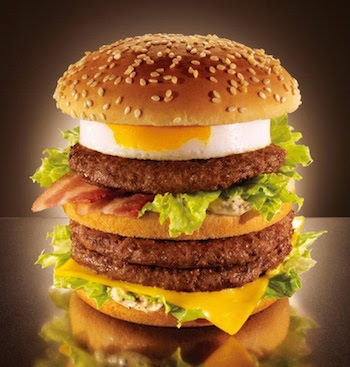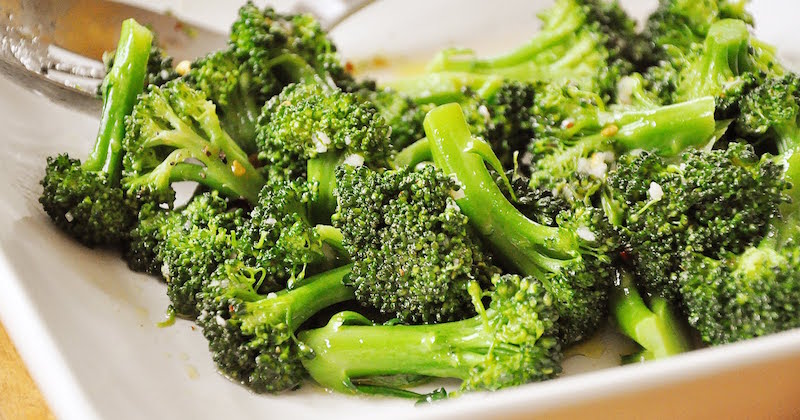Are You Guilty Of These Poor Eating Habits?
Last updated on
Poor eating habits and failure to maintain a sensible diet is the beginning of many health problems that a majority of the society face today.
These Poor Eating Habits Cause Poor Health
We’ve learned of the symptoms and conditions that are indirect results of poor intestinal health. But what are the causes? Have you ever given a thought about your intestinal health?
There are many reasons why our intestines become sluggish and ineffective in absorbing nutrients. Why not prevent it if we can? But how do we prevent if we don’t know what? Let’s take a closer look at some of these which we often take for granted.
1. Speed Eating and Overeating

Overindulging in food burdens the intestinal health and contributes to congestion of the intestines and incomplete digestion. This results in proliferation of bacteria and yeast.
Growing up, my mother often told us that we should eat only 80% full. There is some wisdom in that teaching.
Bear in mind that it is better to under-eat than to over-eat. It feels good when you’re “just full” but feels horrible when you’re “over full”. I’m sure you will agree with me.
Make it a habit to just eat in moderation and regularly fast on liquids for a day or two. And by liquids, I don’t mean coffee or soda!! I mean fresh fruit and vegetable juices, vegetable soups, herbal teas and lots of pure drinking water.
2. Eating At Irregular Mealtimes
When we eat at regular mealtimes, our body knows when to prepare for secretion of the right amounts of digestive juices for the meal. But when we eat at irregular mealtimes, skipping a meal every now and then, it disrupts the bile production by the liver.
Once we skip a meal, we tend to eat more at the next meal. Not only does this become an issue of overeating, it also disrupts cell metabolism. Metabolic disorder causes gastritis, diabetes, obesity and other health problems.
It is recommended to eat a very light breakfast (fresh fruits or yogurt or a drink of juice) in the morning. The largest meal of the day should be taken around midday and very light meal for dinner (at least two or three hours before your bedtime).
3. A Diet That Lacks Fiber
In our modern society, more and more people are going for convenience foods that are highly processed and refined. When we eat foods that are low or lack fiber, the peristaltic movement cannot push the food downwards completely. It becomes “slushy” and easily sticks to the wall of the intestines.
Imagine how bread, a low fiber food, sticks to your teeth. This is how it sticks on the walls of your intestines. After many years of eating these kind of foods that don’t get pushed out of the body, the remnants stay in the intestines and rot, and breed bacteria and parasites.
Likewise with consumption of meat that has no fiber. It takes a much longer time to travel through the intestinal tract. The longer it stays in the intestines (longer if there is constipation), the more the rotted food that has become very toxic, will stay in contact with the colon walls. This, is how colon cancer develops. Bad breath is a sign of this problem.
To enable food to travel faster down the intestines and to prevent constipation, eat high fiber foods to create bulkier stool. Fibrous foods also act as an internal broom that sweeps the intestinal tract as it goes in. Speedier bowel transit time reduces your intestinal contact/exposure to toxins.
Foods that are high in fiber are all fruits, vegetables and grains. None in animal products. Avoid processed and refined foods that come in nice plastic packaging that seems to sit on the shelves for months before you buy them. It is best to eat fresh fruits and vegetables raw, uncooked. Overcooked vegetables render them fiber-less and more difficult to digest. If you have to cook your vegetables, lightly cook, blanche, or steam them.
4. A Diet That Lacks Enzymes
Highly processed and refined foods not only lack fiber (as mentioned above), they are also lacking in enzymes. Enzymes are essential for healthy digestion, but some methods of preparing food and cooking easily destroys them.
Foods that have no enzymes cannot digest itself. Eventually, the digestion slows down and cause incomplete digestion. The indigested foods stay in the system and ferments, causing toxicity of the blood.
Here’s a page that explains in more detail about our digestive enzymes.
Enzymes are found in abundance in raw fruits and vegetables. When God created fruits and vegetables, He had packaged the necessary enzymes to digest the particular nutrients in that fruit.
For example, in a juicy sweet fruit, there is sucrase, the enzyme required to digest sucrose. In fibrous foods there is packaged together, cellulase to digest them. In grains there is maltase, to digest malt, and so on.
Increasing consumption of fruits and vegetables by juicing is one of the best ways to get plenty of enzymes into our body as we continue eating foods that are enzymes-deficient.
5. Not Drinking Enough Water
Not drinking enough water is dehydrating. Water acts like a “lubricant” to help foods move easier down the intestinal tract. One of the functions of our intestines is to absorb water. If we don’t drink enough water, by the time the food gets to the colon, it has become moisture-less or almost dry ¾a cause for constipation.
We often think that we drink “a lot of water” but how much is “enough”? As a general guide, we should be drinking about 8-10 (8-oz/230ml) glasses of water a day. That would amount to about 2 quarts/liters a day. More if you are more than 160lb/70kg, are in hot/humid environment, exercise, have a health condition or are pregnant/lactating. See this page for a better understanding of how much water you need daily.
Drinking caffeinated beverages like coffee and soda and other stimulant drinks are not counted. They actually dehydrate you even more. So, for every glass of these dehydrating drinks, you will need to drink four more glasses of pure drinking water to counter the dehydrating effect!
Adding a bowl of oatmeal daily (at least 6-8 tablespoons of oats) is a good way to include fiber in your diet to help move bowels AND clean out the intestines. After some time taking oatmeals, you may notice an improvement in your overall health. A clean colon helps relieve many health issues. Read more about the health benefits of oats.
Some of the links I post on this site are affiliate links. If you go through them to make a purchase, I will earn a small commission (at no additional cost to you). However, note that I’m recommending these products because of their quality and that I have good experience using them, not because of the commission to be made.











 JOIN OVER
JOIN OVER
Comments